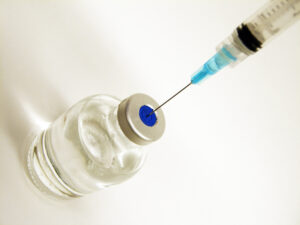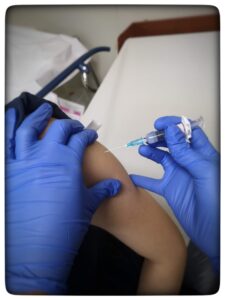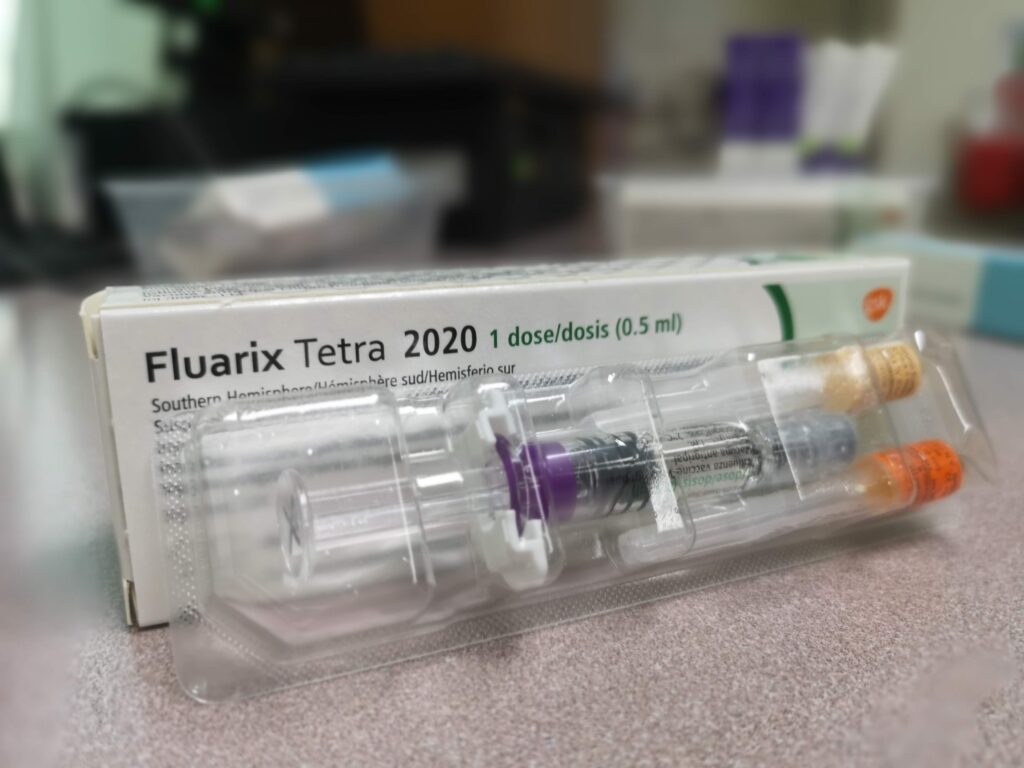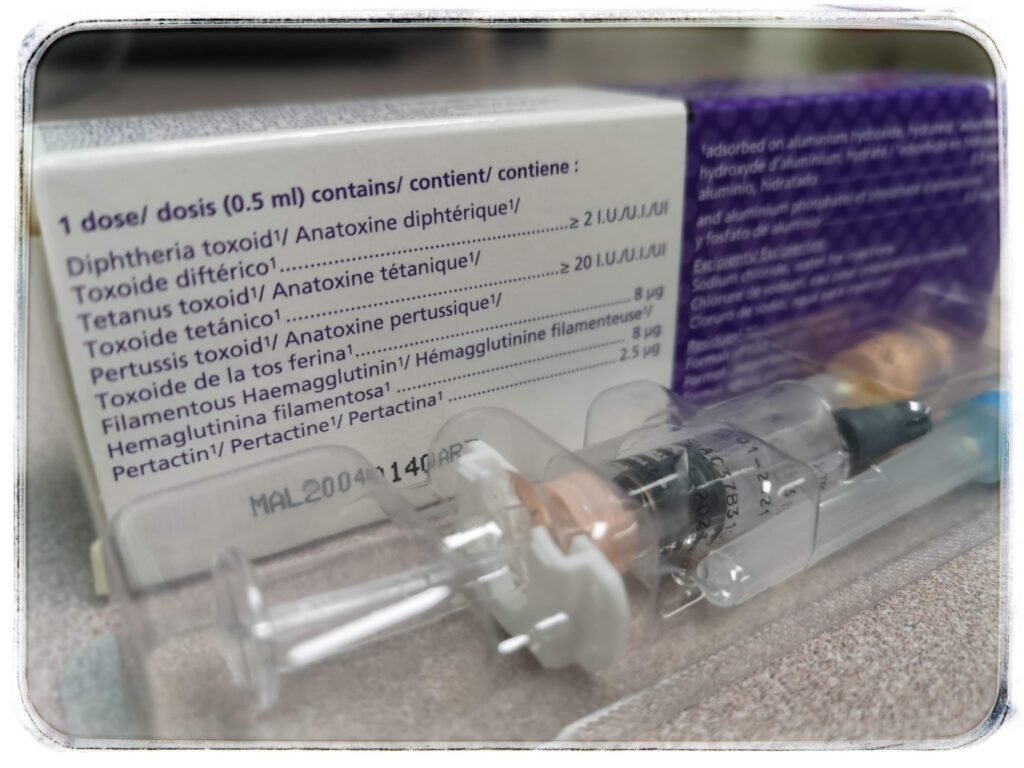 It is important to ensure that you are adequately protected against certain infectious diseases during your pregnancy. In the community, people are protected against infectious disease because they have had the infections before and developed immunity to it. Some are protected against chickenpox, for example, because they had it when they were kids, causing their immune systems to make antibodies to the chickenpox virus. However, over time the antibody level may decline to a very low levels and the person may lose the protection against that particular infectious agent.
It is important to ensure that you are adequately protected against certain infectious diseases during your pregnancy. In the community, people are protected against infectious disease because they have had the infections before and developed immunity to it. Some are protected against chickenpox, for example, because they had it when they were kids, causing their immune systems to make antibodies to the chickenpox virus. However, over time the antibody level may decline to a very low levels and the person may lose the protection against that particular infectious agent.
 Alternatively, many in the community have been vaccinated and developed antibodies to that specific infectious agent contained in the vaccine. Many countries now have an immunization schedule that tries to cover as many infectious disease as possible, hoping to reduce the disease burden to the community and the health care system.
Alternatively, many in the community have been vaccinated and developed antibodies to that specific infectious agent contained in the vaccine. Many countries now have an immunization schedule that tries to cover as many infectious disease as possible, hoping to reduce the disease burden to the community and the health care system.
Do I need to get any vaccines before I become pregnant?
If you see your doctor before planning to get pregnant, a blood test may be done to assess your immunity to certain infectious diseases. If there is no immunity, you should then get vaccinated prior to pregnancy. These tests are rubella and hepatitis B. Testing for Chicken Pox is not routinely done but recommended if you are not sure of your past exposure.
 If you know you have never had rubella, mumps, and measles or been immunized against this trio of serious childhood diseases, or if testing showed you are not fully immune (sometimes immunity wears off), get vaccinated now with the MMR (measles, mumps, rubella) vaccine and then wait 3 months before you start trying to conceive. It is important to avoid pregnancy for at least 3 months after vaccination because of concern regarding the risk of causing congenital abnormality in the fetus immediately after vaccination.
If you know you have never had rubella, mumps, and measles or been immunized against this trio of serious childhood diseases, or if testing showed you are not fully immune (sometimes immunity wears off), get vaccinated now with the MMR (measles, mumps, rubella) vaccine and then wait 3 months before you start trying to conceive. It is important to avoid pregnancy for at least 3 months after vaccination because of concern regarding the risk of causing congenital abnormality in the fetus immediately after vaccination.
If testing shows you’ve never had chicken pox, it’s recommended that you be immunized against it pre-pregnancy, at least a month before you conceive. Your immunity to chicken pox is important for your baby, who will not be able to be immunized against the disease until age 1.
If you have no immunity to hepatitis B, immunization for this disease is also recommended now. The Hepatitis B shots come in a series of three, and if you do not finish up the series and you became pregnant, do not worry. It is safe to continue with your pregnancy.
If you are younger than 26, you might consider getting vaccinated against human papilloma virus (HPV), but you will need to finish the full series of three doses over 6 months before trying to conceive.
Do I need to get any vaccines during pregnancy?
- Whooping cough is a serious disease that can be deadly for babies. It is a bacterial infection caused by Bordetella pertussis. There is a worldwide increased incidence of whooping cough in new-born now. New-born babies do not start building their own protection against whooping cough until they begin vaccinations at two to three months old. To protect them, it is recommended to vaccinate pregnant women during the third trimester of pregnancy. You will produce high levels of antibodies and this will be passed to your baby before birth. These antibodies will help protect your baby against whooping cough in the first few months of life. There is no whooping cough only vaccine. Therefore, it is now recommended that all women receive a tetanus-diphtheria-pertussis (Td or Tdap) combination vaccine during the 27th through 36th weeks of pregnancy, preferably during the earlier part of this time period. With this vaccine, you do not need an additional tetanus shot.
- All pregnant women should be vaccinated for influenza. Pregnant women and their babies are at increased risk for influenza-related complications. They are also more likely to develop more serious illness compared to women of reproductive age who are not pregnant and are more likely to require hospitalization as well. Vaccination is safe and effective at any time of the year. It can be given at any time through-out the pregnancy. Vaccination of pregnant women will have added benefits to their babies. The antibodies from the mother can pass to the babies and protect them from flu illness for the first several months after their birth when they are too young to get vaccinated.
Do I need to get any vaccines after delivery?
 That depends on which ones you already had, and when. The blood tests you have taken during your pregnancy will reveal if the relevant immunizations are already up to date. During your pregnancy, you will be screened for rubella and hepatitis B. If either one or both showed an absent or very low titre of antibodies (which means that you are not protected), you should be vaccinated. This can be done just before discharge home. For rubella vaccination, usually the combination of a three-in-one vaccine is given (measles, mumps, rubella -MMR).
That depends on which ones you already had, and when. The blood tests you have taken during your pregnancy will reveal if the relevant immunizations are already up to date. During your pregnancy, you will be screened for rubella and hepatitis B. If either one or both showed an absent or very low titre of antibodies (which means that you are not protected), you should be vaccinated. This can be done just before discharge home. For rubella vaccination, usually the combination of a three-in-one vaccine is given (measles, mumps, rubella -MMR).
To download and print a pdf copy, CLICK HERE
Please subscribe HERE to receive the regular newsletter and get the latest updates regarding Women’s Health



